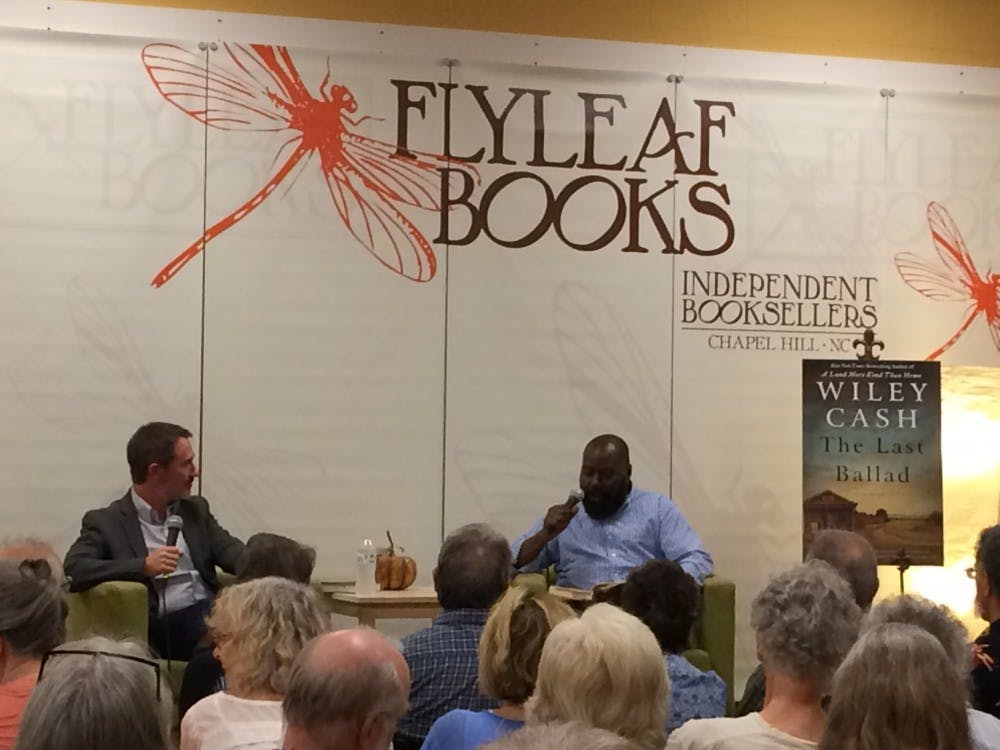In his new novel, “The Last Ballad,” Wiley Cash talks about poverty, misogyny and race through the unsung heroine Ella May Wiggins of the Loray Mill strike. Cash is a New York Times bestselling author for his novel “A Land More Kind Than Home.”
Staff writer Beni Mathieu spoke with Cash about his new book before his discussion of the novel Wednesday, Oct. 11 at Flyleaf Books.
The Daily Tar Heel: Where did you get the idea for "The Last Ballad"?
Wiley Cash: I got the idea based on a true story. It’s based on a textile mill strike that happened in my hometown of Gastonia in North Carolina in 1929. It was a really violent, divisive strike and I grew up never hearing about it. My parents, who were both from mill families, never heard about it either. When I went to graduate school in Louisiana in 2003, (one of my professors) mentioned it. I started researching it and discovered that it was one of the most significant labor struggles in American history. I was really curious about why this secret had been kept from me and so many people in Gastonia.
DTH: In what ways, if any, does "The Last Ballad" differ from your previous works?
WC: It’s a much more expansive novel. It’s a political novel, it’s a cultural novel, it’s a historical novel and it covers a much larger span of time. My first two novels had these tightly compressed stories and a relatively limited cast of characters. “The Last Ballad” is a much bigger book; it’s a much more ambitious book.
DTH: How did living in North Carolina influence your sense of place writing the novel, which is set in the foothills of the state?
WC: This is the first book I’ve written while I was living again in North Carolina. My first book was in Louisiana and my second book was written in West Virginia. So I think I had a much closer connection to North Carolina, and plus, it was much easier for me to travel to the places I was writing about. I think that made the story and the characters and the situation in the novel feel that much more real.
DTH: You're the writer in residence at UNC-Asheville. What do you do as a writer in residence?




